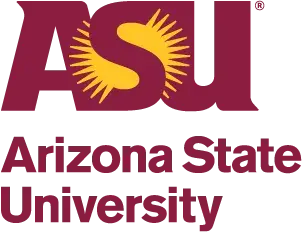There is high demand for your scientific and technical skills in the law today. And to help courts ascertain the truth and render fair decisions, expert testimony from scientists, scholars, engineers, and technologists must be crystal clear.
If you’ve been asked to consult or testify in a technical case, follow these four best practices for effective expert testimony.
#1 Use Dynamic Communication
As the name suggests, dynamic communication involves a give-and-take between speaker and listener, changing roles as the conversation develops. “Listen closely to the wording of questions,” advises Tess Neal, associate professor at Arizona State University’s School of Social and Behavioral Sciences, “and use that knowledge toward precision and control with your responses.” Observe body language and tone of voice. Choose your words carefully and gauge how they register with your audience.
“If you need clarity on a certain point, don’t hesitate to say so,” urges Neal, who is also the principal investigator of ASU’s Clinical and Legal Judgement Lab. She points out that although direct examination differs from cross-examination in significant ways, dynamic communication is important in both contexts of testimony.
#2 Use Good Body Language
This refers to the postures, gestures, and non-verbal expressions you employ while on the witness stand or in consultation with investigators, attorneys and judges. “You want to convey that you are open and receptive to inquiries, willing to cooperate and help their understanding,” Neal says. Avoid crossing your arms or bowing your head, as this blocks off the listener. Make eye contact with people (without staring them down) and use affirmative movements such as nodding your head.
In his book, Testifying in Court: Guidelines and Maxims for the Expert Witness, Stanley L. Brodsky recommends trying to look at and talk to the jury, as appropriate, suggesting that “awareness of eye contact is often a central component of good testimony (2023, p. 169).” Remain relaxed, breathe easily, and slow down your speech and movement. These and other practices will put others at ease and engage them in your testimony.
#3 Avoid Jargon
Speak in layperson’s terms. It’s easy to lapse into the technical vocabulary of your profession, but of course, not everyone is familiar with that language. Use simple, everyday words that nearly anyone could understand and clearly define your terms. Explain it as you would to a class of high school students who are learning the subject for the first time.
Using plain, uncomplicated expressions will keep people involved and not alienate or push away your listeners. As Neal notes, “Experts who approach legal consultation as an opportunity to share what they know in an understandable way have more impact on the quality of justice than experts who aim to impress people with their intelligence but can’t be understood.”
#4 Avoid Overconfidence
This point is subtle, but it goes to believability. Confidence is a good thing when it builds trust and assurance with the jury, but overconfidence can be off-putting and even come across as bluffing to cover up a lack of knowledge. Avoid using sweeping statements and absolute terms such as “always,” “never,” and “everyone.” Be careful to qualify your testimony with phrases like “often,” “seldom,” or “in some cases.” Cite other authorities to back up your claims, and when appropriate, clearly identify your testimony as opinion based on experience.
How to prepare for expert testimony
There are many more techniques you can employ as an expert witness or consultant to the law. If you are interested in putting your scientific, engineering, or technical expertise to work as an expert witness in a civil or criminal court case, and you’re unfamiliar or out of practice with the process, you might benefit from brushing up on the basics. Find a good course in preparatory training, such as How to Consult with the Law, offered by ASU CareerCatalyst.
The best training covers all the fundamentals of consulting in the legal system, working with investigations, understanding your role as an evidentiary expert, and gives you the knowledge you need to get started as a scientific consultant.
If you know how to impart your scientific and technical skills effectively, you could help the legal system better evaluate and rely on sound evidence for greater fairness in the law—and get well paid for your contribution.






